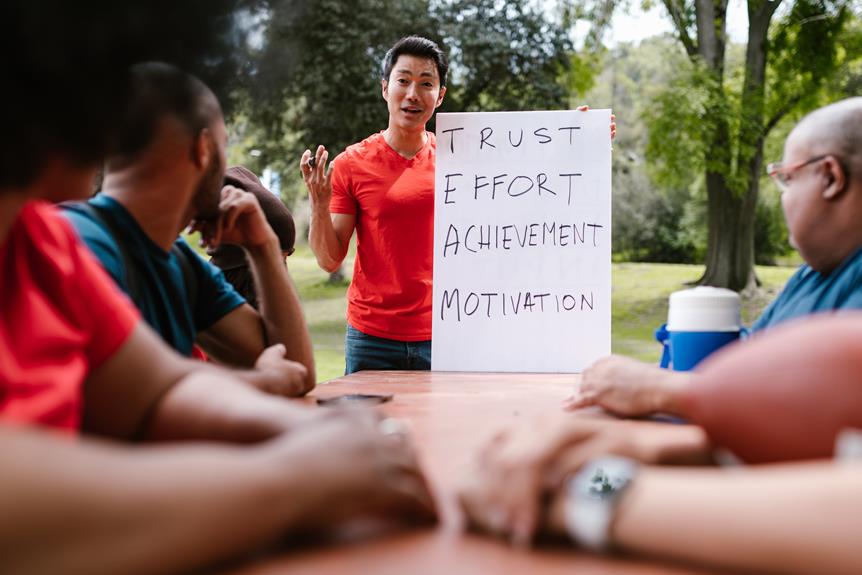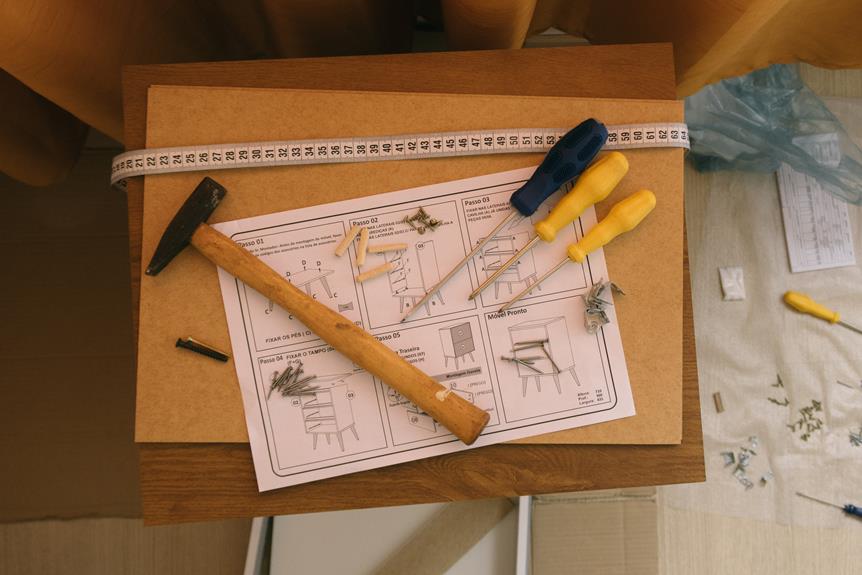So you think playing games is just a waste of time, huh? Well, think again! Get ready to be pleasantly surprised as we take you on a journey through the wonderful world of the mental benefits of playing games.
In this complete guide, we'll show you how games can actually sharpen your mind and improve your cognitive abilities. From boosting your memory and strategic thinking skills to enhancing your decision-making abilities, playing games is no joke.
You'll even improve your social and communication skills along the way. So, if you're ready to unlock the hidden power of games and give your brain a workout, keep reading. This guide has got you covered.
Key Takeaways
- Playing poker can keep your mind active and sharp.
- Poker helps improve decision-making skills and mental math abilities.
- Poker develops patience, which is useful in challenging situations.
- Playing poker regularly enhances memory and strategic thinking skills.
Improved Cognitive Function
Regularly playing poker can significantly improve your cognitive function. Research shows that engaging in strategic card games like poker stimulates the brain and enhances various mental abilities.
First and foremost, it helps improve your decision-making skills. Poker requires you to make calculated choices based on the information available, which exercises your analytical thinking and problem-solving abilities.
Additionally, playing poker enhances your mental math skills as you constantly calculate the odds and probabilities of different hands. This not only sharpens your numerical abilities but also improves your overall mental agility.
Furthermore, poker develops patience, a crucial skill for handling challenging situations both in the game and in real life. By observing opponents' behaviors and interpreting their body language, you also enhance your people skills and emotional intelligence.
Enhanced Decision-Making Skills
Improve your decision-making skills by playing poker and honing your analytical thinking and problem-solving abilities.
Poker requires you to make strategic decisions based on the information available to you, such as your cards, the actions of other players, and the potential outcomes of different moves. This constant evaluation and decision-making process can translate into real-life situations, where you'll be better equipped to assess options, weigh risks, and make informed choices.
Research shows that playing poker can enhance your ability to think critically and make logical decisions under pressure. It can also improve your ability to analyze complex situations, consider multiple perspectives, and anticipate the consequences of your actions.
Boosted Memory and Strategic Thinking
To boost your memory and strategic thinking, playing poker offers a valuable training ground. Here are three ways in which playing poker can enhance these mental skills:
- Memory Improvement: Poker involves remembering the cards that have been played and analyzing the patterns of your opponents' bets. This constant exercise of recalling information helps sharpen your memory and enhances your ability to retain and retrieve information in various situations.
- Strategic Thinking Development: Poker is a game that requires strategic planning and decision-making. You need to assess the strength of your hand, anticipate your opponents' moves, and make calculated bets. By playing poker regularly, you develop a strategic mindset and learn to think critically about the best course of action in different scenarios.
- Adaptability and Flexibility: Poker is a dynamic game where the situation can change rapidly. To succeed, you must be adaptable and able to adjust your strategy on the fly. This flexibility trains your brain to think on its feet and make quick decisions based on new information.
Increased Patience and Resilience
Playing poker can cultivate a stronger sense of patience and resilience. In the game of poker, you often have to wait for the right moment to make a move, whether it's folding, calling, or raising. This requires patience and the ability to control your impulses. Additionally, poker can be a rollercoaster of emotions, with players experiencing both wins and losses. Developing resilience is essential to bounce back from setbacks and keep a level head. Check out the table below to see how playing poker can enhance your patience and resilience:
| Increased Patience | Enhanced Resilience |
|---|---|
| Waiting for the right moment to act | Bouncing back from losses |
| Controlling impulses and emotions | Adapting to changing circumstances |
| Staying focused and composed | Learning from mistakes and improving |
| Accepting outcomes beyond your control | Developing a positive mindset |
| Recognizing the value of persistence | Taking calculated risks |
Improved Social and Communication Skills
Enhancing social and communication skills is a significant outcome of engaging in games. When you play games, you have the opportunity to interact with others and practice important social and communication skills. Here are three ways in which playing games can improve your social and communication skills:
- Collaboration: Many games require teamwork and cooperation. By playing games with others, you learn how to work together towards a common goal, communicate effectively, and solve problems as a team.
- Verbal Communication: Games often involve conversation and discussion, which can help improve your verbal communication skills. You learn how to express your thoughts and ideas clearly, listen actively to others, and engage in meaningful conversations.
- Non-Verbal Communication: Some games, such as charades or Pictionary, focus on non-verbal communication. These games can help you develop skills in interpreting body language, facial expressions, and gestures, improving your ability to understand and connect with others.
Frequently Asked Questions
Does Playing Games Other Than Poker Offer the Same Mental Benefits?
Playing games other than poker can offer similar mental benefits. Games like chess improve strategic thinking, memory, and decision-making skills. Sudoku enhances problem-solving abilities. Solitaire helps with concentration. It's important to find games that suit your interests and goals.
Can the Mental Benefits of Playing Poker Be Transferred to Real-Life Situations?
Yes, the mental benefits of playing poker can be transferred to real-life situations. It improves decision-making, strategic thinking, and risk assessment skills, which are valuable in various aspects of life.
Are There Any Drawbacks or Potential Negative Effects of Playing Poker?
There are potential drawbacks to playing poker, such as the risk of addiction, financial loss, and strained relationships. It's important to play responsibly, set limits, and prioritize your well-being over the game.
How Long Does It Take to Start Experiencing the Mental Benefits of Playing Poker?
You'll notice the mental benefits of playing poker within a few weeks. Improved decision-making, memory, and strategic thinking skills will boost your confidence and make you feel sharper and more capable in everyday life.
Are There Any Specific Strategies or Techniques That Can Be Used to Maximize the Mental Benefits of Playing Poker?
To maximize the mental benefits of playing poker, focus on strategic decision-making, observing body language, and managing risk. Regular practice and online play can help develop skills for life challenges.
Conclusion
Congratulations! By delving into the world of games, you have unlocked a treasure trove of mental benefits. From sharpening your cognitive function to enhancing your decision-making skills, playing games is like a workout for your brain.
Not to mention, the added bonus of improved memory and strategic thinking. But wait, there's more! Games can even boost your patience and resilience, while also improving your social and communication skills.
So, why wait? Grab your favorite game and let the mental benefits begin!




